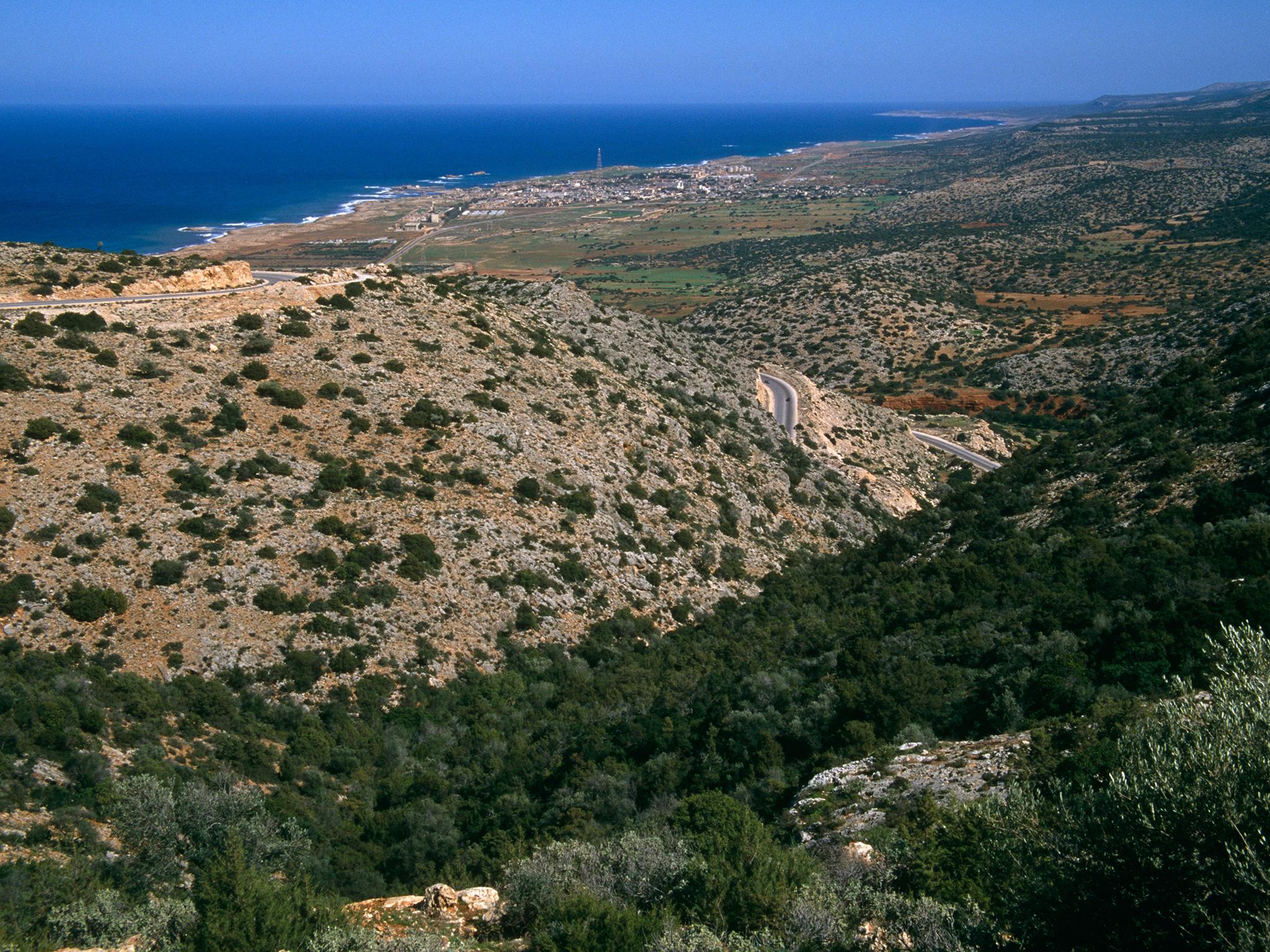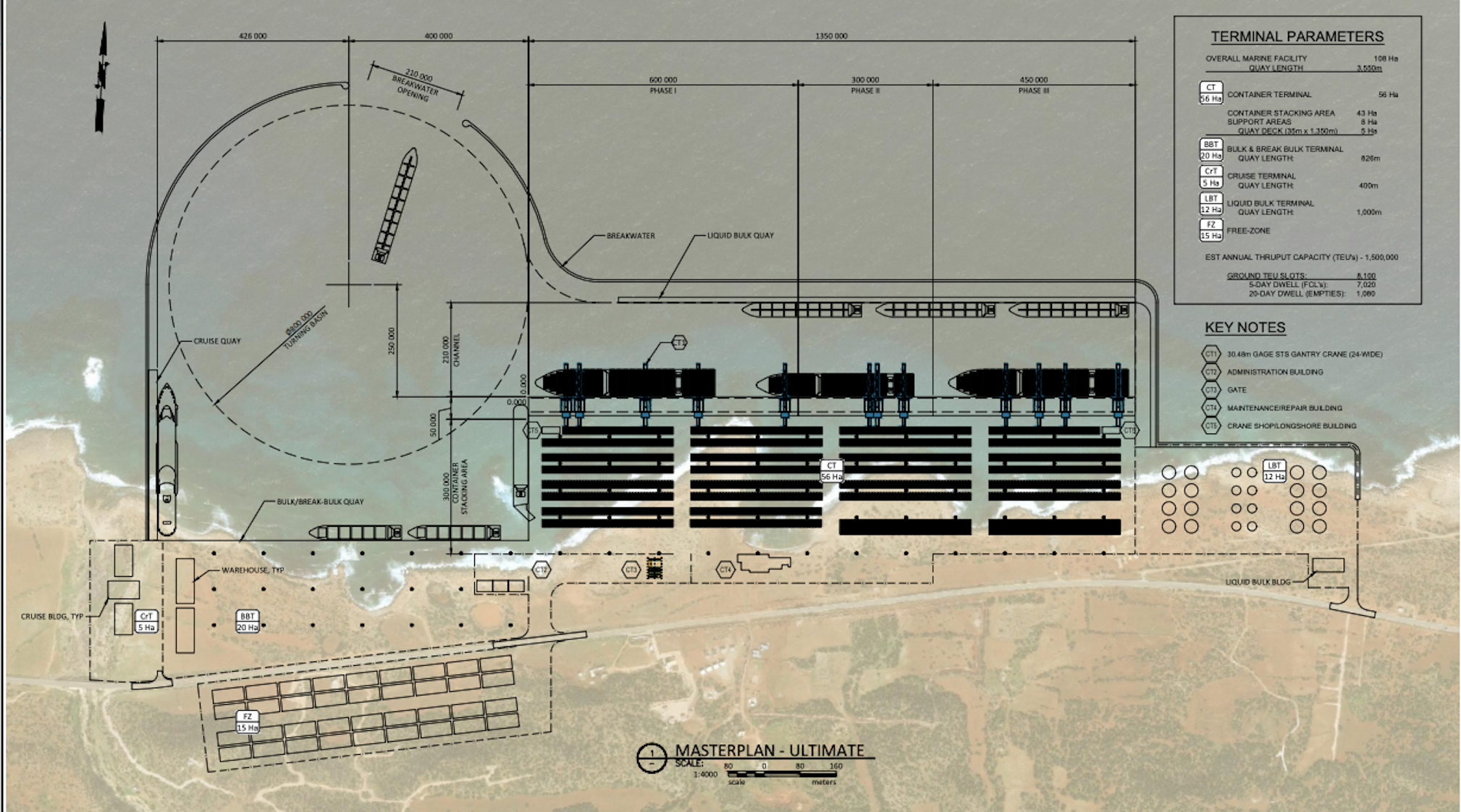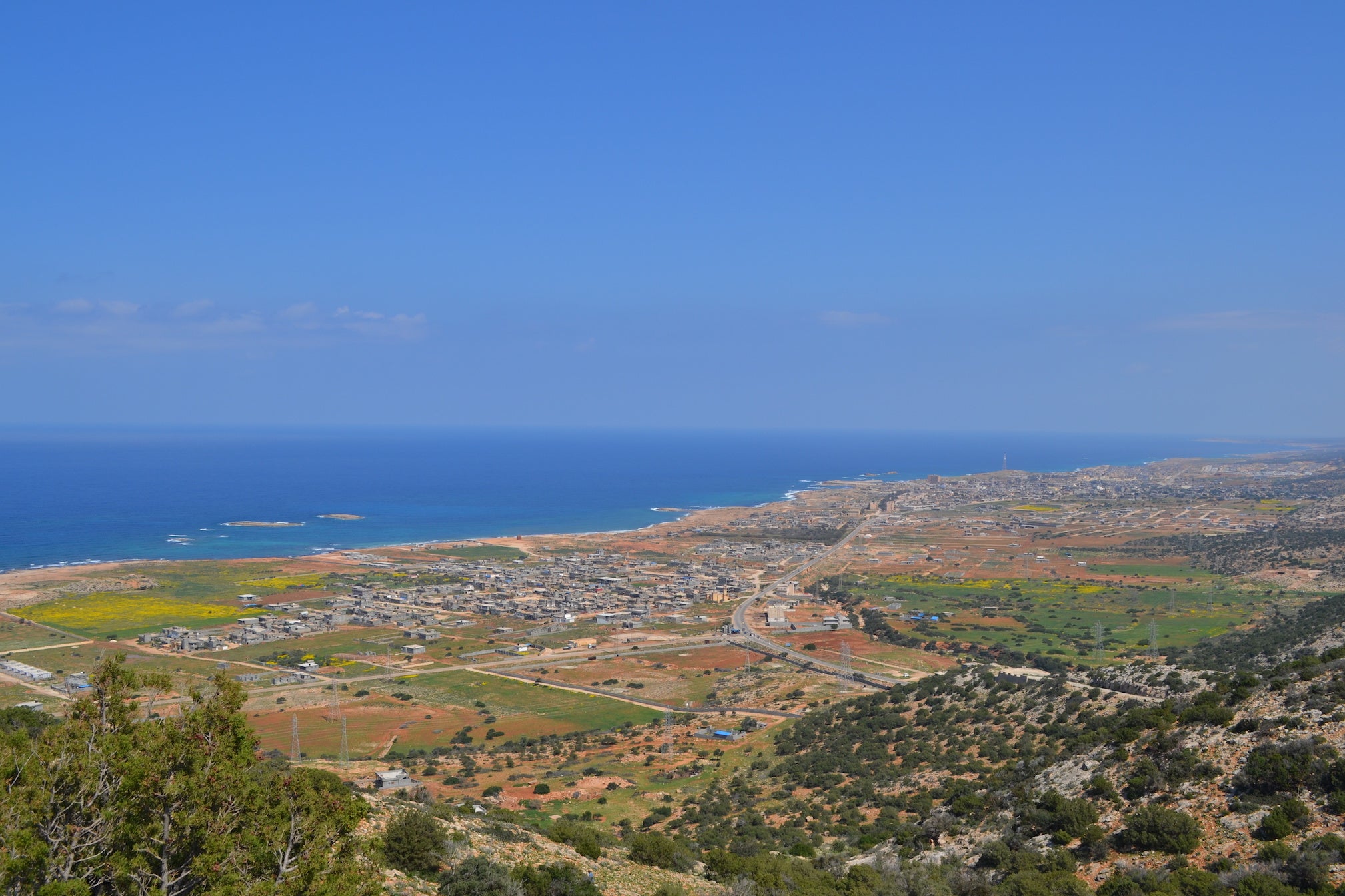The ambitious port hoping to become Libya’s ‘jewel of Africa’ and bring warring sides together
Both sides of country are 'working closely together on everything related to the ports and maritime capabilities'

More than once over the last four years, while Michael Guidry was trying to assemble and pitch his plan to build the country’s first deepwater seaport on Libya’s coast, the 64-year-old Texan found himself in peril.
There was the time a shisha cafe owner quickly ushered him out a back door amid anti-American murmurs by customers. There were the numerous checkpoints manned by suspicious teens armed with assault rifles peering into his vehicle.
But the worst day had to be when he narrowly missed being surrounded and possibly captured by Isis militants on the outskirts of the eastern Libyan city of Derna.
“We’ve had some bad days,” he acknowledged during a phone interview.
For Mr Guidry, perseverance paid off. This month the Libyan seaport authority agreed to grant the former security contractor the $1.5bn (£1.1bn) deal to build the country’s first port suitable for the world’s largest cargo vessels at the eastern Libyan city of Susah.
“If we’re lucky, this will be the jewel of North Africa,” he told The Independent.
Vast, oil-rich Libya, which toppled its longtime ruler Muammar Gaddafi in a 2011 Nato-backed uprising, is in tatters. Separate governments claim authority in the east and west and armed groups sometimes don’t recognise either of them.
Security in the capital, Tripoli, hit a new low last week with clashes in the southern suburbs between rival militias vying for control of the country’s largest city. Residents complain of a lack of any public services.
The de facto ruler of Libya’s east, army officer Khalifa Haftar, has made a move on the country’s southern oil fields, sparking clashes in the country’s most impoverished region and claims that the eastern army was engaged in acts of “intimidation, kidnapping and looting”.
Foreign powers – primarily the United Arab Emirates, Egypt, Turkey and Qatar – are meddling, even allegedly sending arms to their favoured clients in violation of a UN embargo, something they deny.
The UN hopes for a June election, an aspiration many Libya observers consider unrealistic.

But some see the country eventually settling down. Despite the political divisions and failed attempts to create rival regional institutions, the country’s central bank, finance ministry, national petroleum company, utility authorities and several other institutions still strive to operate as single units. The International Monetary Fund said Libya grew 11 per cent last year. The Falanx Group, a London-based security and risk advisory firm, said in an assessment this month that Libya would this year achieve a maximum oil output of 1.6 million barrels per day for the first time since the fall of Gaddafi.
Mr Guidry is also optimistic, because, he said, the Susah port project shows the country can still come together when something significant is at stake. “What’s happened is that the seaport authority of the east has talked to the seaport authority of the west, convinced them this is a national priority,” he said.
In a statement, Hassan Jwaili, one of the seaport chairmen in eastern Libya, said both sides of the country were “working closely together on everything related to the ports and maritime capabilities”.
The Susah port, located 25 miles northeast of the east’s de facto administrative headquarters in Bayda, will be situated in a natural harbour 18 metres deep and suitable for the modern supertankers considered the most cost-effective vessels for transporting goods across oceans. The project has already caught the attention of port and maritime specialists.

Despite 1,100 miles of Mediterranean coastline, Libya’s ports are badly outdated, with antiquated technology for moving shipping containers on and off freighters. Mr Guidry said the new port will equipped with the most up-to-date technology, surpassing the speed and efficiency of major Mediterranean ports in Egypt and Tunisia.
Sudan and land-locked Chad have already voiced interest in using the Susah port to import goods. Mr Guidry estimates the port will generate at least $60m in annual revenue by 2022 and twice that by 2040.
“Now it’s time to bring the economy where it needs to be,” said Mr Guidry.
The Susah port project is on a design, build, operate and transfer model that would allow Mr Guidry’s firm to run it for at least its first 25 years. He and his eight-person team won the deal in a bidding competition, beating eight proposals from firms in China, Russia, France and Italy. He said he received no help other than security warnings from US consular officials holed up at a temporary embassy in neighbouring Tunisia.
Mr Guidry came to Libya as a security contractor four years ago and said he fell in love with the country, and wanted to invest in something that would also create work for the people who welcomed him into their homes. He said he put his own money into the project, even drawing from his retirement savings. He noted that Susah lies near an ancient archaeological site where legend has it Mark Antony built his love Cleopatra a swimming pool.
“Five years ago people would have said: ‘He’s crazy. They’re going to cave in on him,’ or: ‘He’s gonna break,’” said Mr Guidry. “But it’s real and it is happening.”
Join our commenting forum
Join thought-provoking conversations, follow other Independent readers and see their replies
Comments
Bookmark popover
Removed from bookmarks